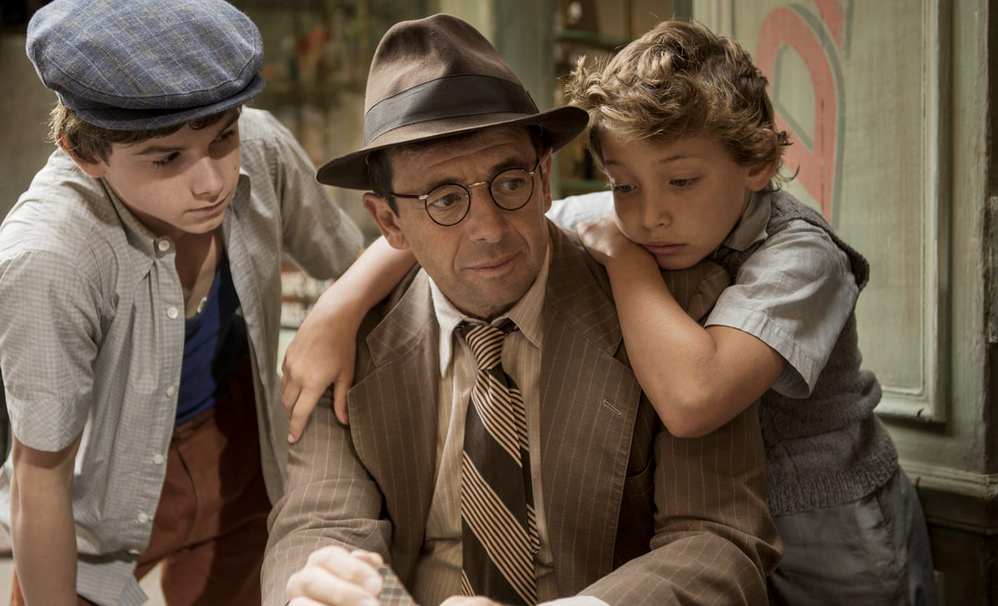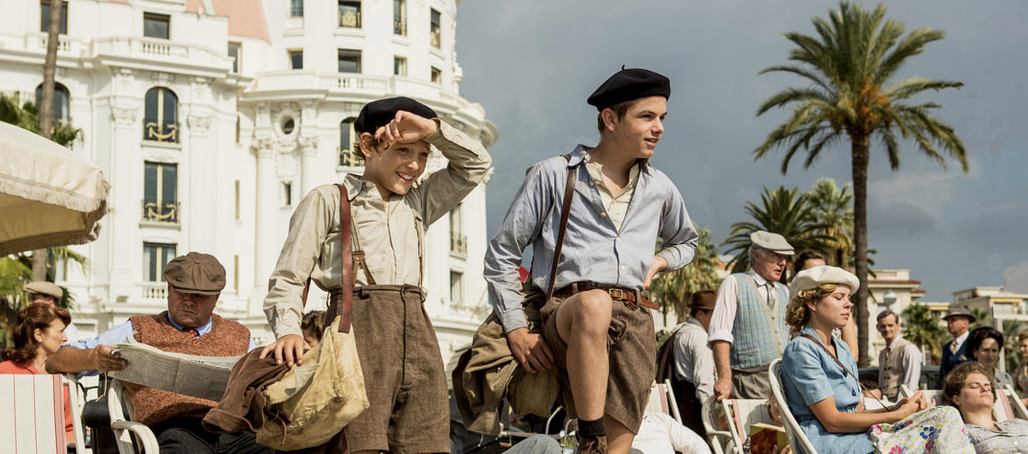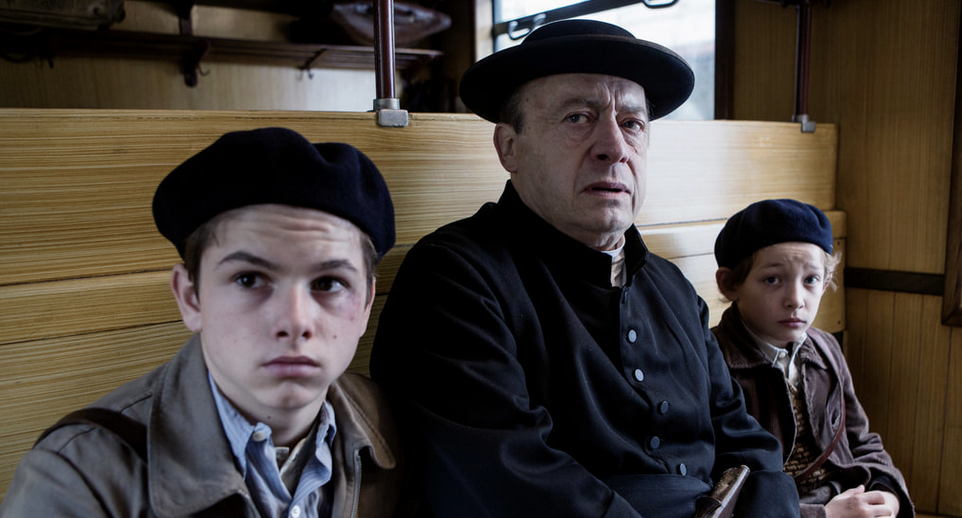Strength, Courage, Resilience and Brotherhood – A Bag of Marbles
By Sue Weston and Susan Rosenbluth – Two Sues On The Aisle
It is unthinkable! Parents sending their children across occupied France alone. This was a desperate decision facing Roman (Patrick Bruel) and Anna Joffo (Elsa Zylberstein). The Joffo’s were a Jewish family that needed to leave Nazi-occupied Paris in 1941. Just as Roman’s father had sent him away to escape the Pogroms a generation earlier, they were preparing to send their young sons, Joseph (Dorian Le Clech), age 10, and Maurice (Batyste Fleurial), age 12 into the night. The boys had 5,000 francs each, directions, and stern instructions to deny they are Jewish. A Bag of Marbles is based on Joseph Joffo’s autographical novel, a story of strength, courage, resilience, and family.
The film is bookended by a blue marble, chipped, pitted, and beloved by Joseph. The movie opens with the brothers playing marbles, a silly children’s game. When Maurice wins he tosses the blue marble to Joseph. The same marble remains in Joseph’s pocket for his entire journey, falling out of hand at the end of the film, discarded. Symbolically marking the end of his childhood innocence and the hope of reuniting as a family.
Childhood Cut Short
After the Nazis ordered Jews to wear yellow stars with the words Juif emblazoned in the center, the climate in Paris changed. Joseph recounts “I was a kid like any other — with marbles, games, clouts on the ear, lessons to learn. Now, all of a sudden, they stick a few square inches of cloth on me, and I turn into a Jew.” Showing up for school, the brothers become targets in a playground brawl, the star marked them as undesirable. Their friends and teachers turned against them. Yet it is also a novelty, for which a boy offers Joseph a bag of marbles.
The deteriorating situation in Paris forces the family to travel separately to Nice for safety. In preparation for their trip, Roman trains the boys to withstand Gestapo questioning if they are caught. Repeatedly he slaps Joseph on the face demanding “You’re a Jew, aren’t you?” Joseph’s eyes are wide, scared, but he answers “No, I’m not a Jew, I’m not a Jew.” Then satisfied, they embrace—an emotional moment for father and son. The decision to send the boys away alone weighs heavily on the family.
They Have Each Other
Boys will be boys, and they jog along the darkened streets together. You can just tell from their antics that they love life and have a deep connection.
In an earlier scene, the brothers watch Nazi soldiers approaching their father’s barber shop. They stand in front of the store covering the ‘for Jews only’ sign and gleefully watch the soldiers walk in. When the soldiers say disparaging comments about the Jews, Roman tells them “Gentlemen, in this salon, there are only Jews.”
Later that night, the boys engage in a pillow fight with their father, an indication of this family’s happy and loving nature. In Nice, we watch the Joffo reunion, frolicking in the surf.
The Boys Story
The movie’s focus is on the boys, mere children fending for themselves, facing near disaster, yet managing to continue together. They are saved because of the kindness of strangers, a priest on the train who protects the pair, a Jewish doctor who corroborates that they are Catholic despite their being circumcised, and a guide who leads them safely through the forest.
The brothers show courage and tenacity beyond their years. While at the Catholic boy’s camp, they develop their story, practice the facts, and prepare in case they are interrogated, which inevitably happens.
We found ourselves holding our breath as each turn of events brings the pair in close proximity to death, yet, somehow, they survive protecting each other. In one scene Joseph attacks a Nazi stopping him from beating Maurice. Later Maurice leaves Joseph in the hands of the Nazis to ‘locate’ their Baptismal certificates. Shootings become commonplace, desensitizing the boys and punctuating the seriousness of their situation.
Keeping their Humanity
Joseph had been living in the home of a bookseller, a Nazi sympathizer. After Paris is liberated in August 1944 a mob descends on the bookseller. Joseph rushes to his defense, revealing that he is Jewish, showing that the bookseller harbored and protected a Jew. Joseph’s action stopped the attack, allowing him to repay the kindness the family had given him.
A Bag of Marbles has an almost happy ending, with the boys returning to Paris, and reuniting with their family. It is a bittersweet reunion, as the war had taken a toll. The film ends with a photo of Maurice and Joseph in a Paris café in 2017. They had followed in their father’s footsteps and become barbers.
*****
Two Sues on the Aisle bases its ratings on how many challahs (1-5) it pays to buy (rather than make) in order to see the play, show, film, or exhibit being reviewed.
A Bag of Marbles Received a 5 Challah rating
Run Time: 113 minutes
Language: French, German, Yiddish & Russian with English Subtitles









